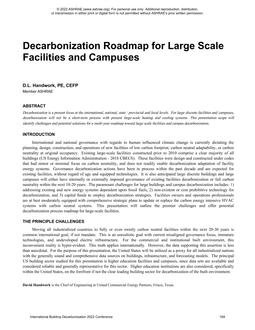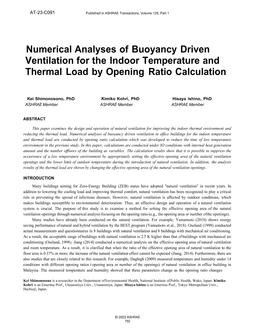
DE-13-C032 — Developing an Innovative Pay for Performance Program
Definitions of measurement and verification (M&V) vary considerably depending on the application and stakeholders involved. On one end of thespectrum, M&V could be as narrow as verification that specific equipment is performing as intended. At a much broader level, M&V can serveas a crucial means for utility officials to determine overall effectiveness of an energy efficiency program. In this paper, we define the range of M&Vdefinitions, highlight where some common applications fall on this spectrum, and focus on long term M&V applications for Pay for Performanceenergy efficiency programs.
An innovative type of efficiency program, called Pay for Performance, requires M&V to determine a project’s actual energy savings to set the levelof incentive payment. Engineers must be prepared to deliver services that satisfy the increased scrutiny and importance of M&V findings. In thispaper, we review the various M&V approaches that are being used in Pay for Performance programs, and discuss the issues and challengespresented by each unique approach. We also present data and insights regarding the accuracy of pre-project savings estimates and the costs ofperforming M&V for currently operating Pay for Performance programs.
Pay for Performance programs are one component of a larger shift toward whole-building energy approaches. As building owners increasingly seekout multi-measure energy projects, and tap behavioral or operational savings, another flavor of M&V emerges. Long-term or annual M&Vquantifies ongoing savings as a way to determine rebates or incentives for Pay for Performance programs. These long term approaches increase thetotal program costs, but can dramatically improve accuracy and provide incentives to owners and service providers to create persistent energy savings.
Product Details
- Published:
- 2013
- Number of Pages:
- 8
- File Size:
- 1 file , 360 KB
- Product Code(s):
- D-DE-13-C032
- Note:
- This product is unavailable in Russia, Belarus


